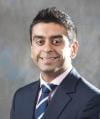The Joint Committee on Surgical Training - why have a trainee there?
created 01 December 2016
The Joint Committee on Surgical Training is the intercollegiate meeting of representatives of training bodies of all surgical specialties. They develop the website which we all use for recording our progress. They devise the ‘assessments' which we have to complete to record our progress. The location of the meeting rotates between each of the Surgical Royal Colleges, to affirm its intercollegiate nature. Now chaired by Mr Bill Allum, ASiT and BOTA representatives also have seats on this committee. Other members of the committee include the Heads of Core Surgical Training along with each SAC Chair, representatives from Surgical Colleges, the chairperson for the Simulation Group, the Quality Assurance team, and lay representatives (http://www.jcst.org/committees/jcst-members). The job of the trainees is to offer the opinion of those in training. Our voice is not dampened by our lack of seniority - and Bill makes sure of that. I’m not sure it’s as simple as having a loud voice, though.
The ISCP website is about to have its revamped version launched. It’s already out there in beta version (http://v10beta.iscp.ac.uk), so trainees have a chance to look through and give our opinion on whether it’s better, and to help to find the glitches so these can be fixed. (Note: we’re not supposed to use this as an interim website; it’s purely an interrogation of the website, not a live training tool as yet).
On the back of the GMC’s mandate that, from 31st July 2016, all trainers will have to be recognised (http://www.gmc-uk.org/education/10264.asp), iscp.ac.uk will have a section for trainers. Trainers will be able to log their training events. However, trainees have mostly funded the development of the website, and trainees largely fund its maintenance. Given this, after our input, I’m glad that whether only trainees should continue to pay for the benefits of this website is up for discussion. We obviously think this is not the case; however, the counter argument is that by making trainers pay also, we might lose good trainers.
One option we’ve presented is that the JCST fee is removed completely and everyone who is a College Member or Fellow pays, with those pre-exam trainees funding it separately. Sponsorship of the website is another option: would we have issues with seeing brand names or adverts on the website? A number of counter-arguments do and will come up, but we will push for the simple fact that if consultants benefit from the website, trainees should not be solely funding it.
At a recent meeting I highlighted that some of our colleagues in Obstetrics & Gynaecology have had their operative logbooks subpoenaed by the courts (on behalf of a claimant, as opposed to assist with the defence’s case). Is this an issue? Surely all of our logbooks should be part of a legal case we’re involved in? Well, our logbooks contain more than numbers don’t they? They contain reflective practice and learning points. The thoughts were that this is outside the remit of the JCST, but reflected practice could be redacted. Should this be relevant to the case, the presiding judge may rule to see that material. Watch this space for further information, but in the meantime, let us know if this happens to you or anyone you know.
A contentious issue, which is drawing to a conclusion, is the appointability of academic trainees. Being one of these myself, I can speak from direct experience. Academic training is not and should not be a nepotistic backdoor to surgical training. In the age of national selection, we should all pass the same benchmark. This discussion continues with the NIHR (the research arm of the NHS, which funds Academic Training), but looks like it could settle imminently with all trainees starting ST3 required to have successfully been through the national selection process.
Simulation in surgical training is now aspirational. It is here, and the GMC and JCST are keen to ensure that it is delivered. ASiT’s survey showing the inequity of availability of simulation resources has proven useful to show that we do not all have access to it. Until that is sorted out, we cannot make it a mandatory part of training - what is more, trainees should not have to fund it themselves.
Obviously the Shape of Training Report comes up and it looks like at least parts of it might come to fruition. You can see the original report here (www.shapeoftraining.co.uk), and ASiT’s responses here (www.asit.org/resources/articles/shapeoftraining). In a nutshell, our stance is simple: we should take the opportunities to improve training where possible, but this should not jeopardise the positives of the current system. Proposed changes should be piloted, and rejected if they are found not to work. There should be no subconsultant grade, and the quality of the end-product must not be degraded. The discussions go on.
That’s a flavour of what is discussed at the JCST meetings, and what the trainees do here. Discussions take time, and although we can see potential solutions, difficulties arise in sorting them out. It’s frustrating, and I can’t think of a way to shorten the discussions to hasten the solutions. What I do know, however, is that if we don’t raise challenges we face, they really never will be addressed. If you have any ideas or messages, please let us know (info@asit.org), and we can collate the discussions and pass them on.
Happy training!
Vimal Gokani, ASiT, immediate Past President and General Surgery trainee

Lewis Ashman
(+admin +former tickbox admin)
